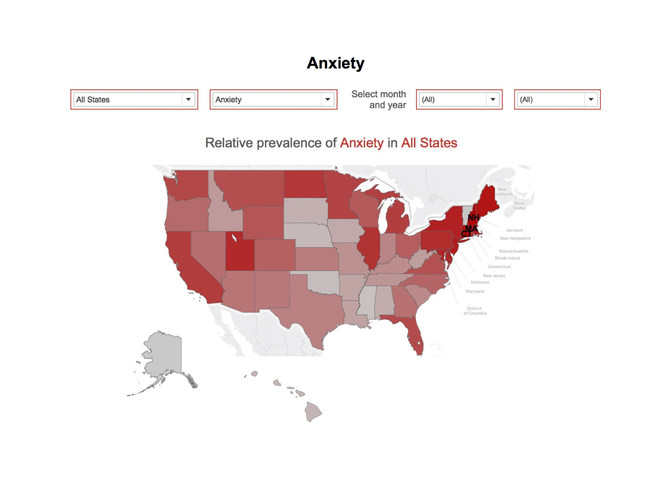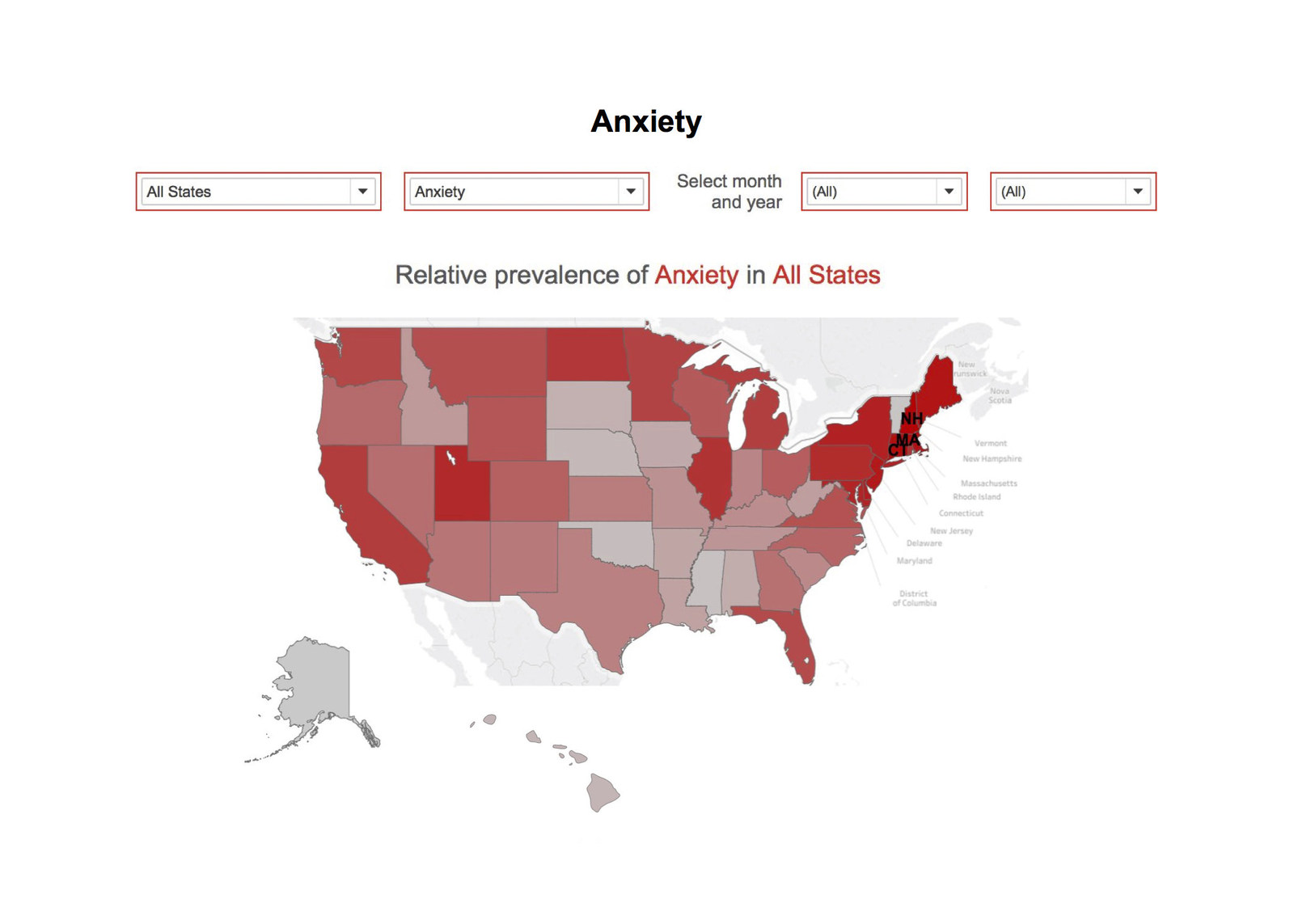A new tool from Crisis Text Line reveals the location, day of the week, time of day, accompanying issues, and words most associated with specific mental health issues. For example, substance abuse peaks at 6am. Eating disorders peak on Sunday and Wednesday. And Vermont, Rhode Island, and Mississippi score highest for bullying.
Data visualizations (like the map shown) use anonymized and aggregated data from over 600,000 crisis conversations over three years to make the largest real-time crisis data set in America interactive and accessible to the public.
“From the beginning, we believed Crisis Text Line could create impact in two ways: first, by expanding access to care for people facing their most difficult moments, and second, by expanding access to data for communities attempting to make informed decisions about mental health. Ultimately, we expect this data to help communities move from reaction to prevention; we’ll generate smarter research and policies that stop crises from occurring in the first place,” said Bob Filbin, Chief Data Scientist at Crisis Text Line.
Data is updated daily, so real-time trends in mental health across the country can be spotted. The updated portal, funded by Robert Wood Johnson Foundation and available at CrisisTrends.org, enables users to search the data based on geography, issue area, and time period.
Insights you can glean from CrisisTrends.org include:
- Do holidays alleviate or increase depression?
- What issues are most correlated with suicidal thoughts?
- Could climate be correlated with eating disorders?
Cities, states, universities, researchers and national organizations are using Crisis Text Line data to address local crises. Holly Jones, of the Ohio Department of Mental Health & Addiction Services says, “By making Crisis Trends data open and accessible to the public, more organizations will begin to realize the potential of using this data to inform, address, and even prevent crises in their communities.”
The organization has already opened up access to anonymized data to researchers, like Dr. Ryan Tolleson Knee, a professor at the University of Montana’s School of Social Work and Director of the Center for Children, Families, & Workforce Development. Dr. Knee explains, “Crisis Text Line’s real time data provides one of the best venues to understand today’s youth and to intentionally develop interventions that account for negative emotions and high frequency months, days, and times.”





